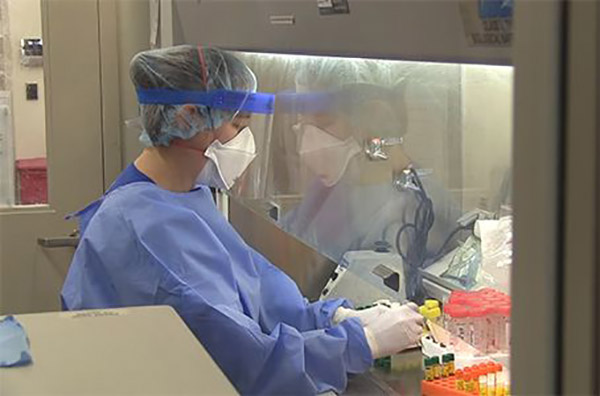
The Tulane Adult Infectious Diseases Section participates in a wide range of research activities, mostly clinical and epidemiological. We have had a longstanding interest in HIV/AIDS, mycoses, mycobacteria and tropical medicine.
Infectious Diseases research opportunities and collaborations are plentiful and span the University. We are fortunate to have a large number of colleagues performing bench research, translational and clinical research at the Tulane University School of Public Health and Tropical Medicine, the Department of Microbiology, the Tulane National Biomedical Research Center, the Pediatric Infectious Diseases Section, as well as in the graduate school on the Uptown campus. Please click on these departments to learn more about their research opportunities.
The are numerous opportunities for fellows to participate in quality improvement and research projects in the areas of antimicrobial stewardship, infection control and microbiology diagnostics.
One of our faculty, John Schieffelin, MD, has been engaged in laboratory investigations on immunologic aspects of Dengue fever, Ebola virus, and is now focusing on Lassa fever, with an emphasis on gender differences. Several times a year he travels to our affiliated hospital in Kenema, Sierre Leone, where he overseas research and an advanced clinical laboratory. During the Ebola outbreak, Dr. Schieffelin was involved in the development of a rapid antigen test for Ebola that came out of the lab of Tulane's Robert Garry, PhD.
Since the early days of the HIV epidemic in the 1980s, we have been involved in some of the seminal clinical trials of treatment of opportunistic infections and antiretroviral therapy. Under the auspices of the AIDS Clinical Trials Group (ACTG), we were a major site for studies on pneumocystis pneumonia, cryptococcal meningitis, PML and DMAC. As a member of the NIH-supported Community Programs for Clinical Research on AIDS (CPCRA), we enrolled patients into pivotal trials for the prevention of PCP, CMV retinitis and DMAC.
More recently, our former CPCRA unit, the Louisiana Community AIDS Research Program (LaCARP), has evolved into a site of the International Network for Strategic Initiatives in Global HIV Trials (INSIGHT), which has sites all over the world. The Tulane unit participates in the ongoing START study, which has already demonstrated the benefit of early initiation of ARVs. We are currently participating in the NIH-sponsored REPRIEVE study, which is investigating the role of a statin in HIV-infected persons with lower cardiovascular risk.
Our Section is a longstanding member of the NIH-supported Mycoses Study Group (MSG), and has contributed to studies on the natural history and treatment of cryptococcal meningitis, disseminated histoplasmosis, blastomycosis and candidemia.
Several faculty have a longstanding interest in tuberculosis and environmental mycobacteria. Our group published two of the largest cohorts of Mycobacterium kansasii infection in HIV (Int J Tuberc Lung Dis 2007; Clin Infect Dis 1995).
Opportunities for research and QI projects in TB are plentiful at the city Wetmore TB Clinic.
In addition to individual faculty mentoring, fellows are eligible for the 10 credit hour Certificate in Clinical Research curriculum during their second year.
Regional Research Opportunities
We have a number of unique research facilities in our area that are worth exploring:
- The National Hansen's Disease (Leprosy) Clinical Center in Baton Rouge, Louisiana is the only facility in the United States devoted to diagnosis, treatment, and research concerning Hansen’s Disease (HD).
- Even if not interested in mycobacterial research, we encourage our fellows to visit the Center to become more familiar with Hansen’s disease and to participate in their 2-day course
- Even if not interested in mycobacterial research, we encourage our fellows to visit the Center to become more familiar with Hansen’s disease and to participate in their 2-day course
- The Tulane National Biomedical Research Center conducts research in non-human primates. Areas of focus include HIV/SIV, Lyme disease, tuberculosis, malaria and a Regional Biosafety Lab, where the focus is on the development of treatments, vaccines and diagnostics for emerging infectious diseases that occur naturally, such as Severe Acute Respiratory Syndrome (SARS) and against biological agents that have the potential for misuse for terrorism
